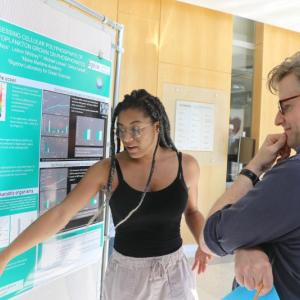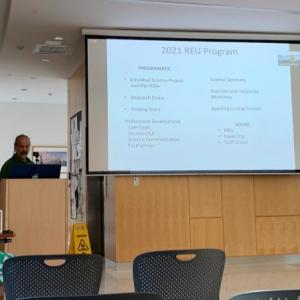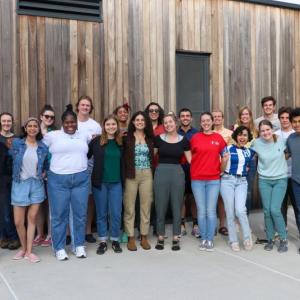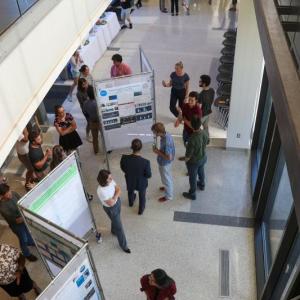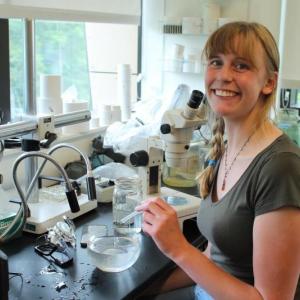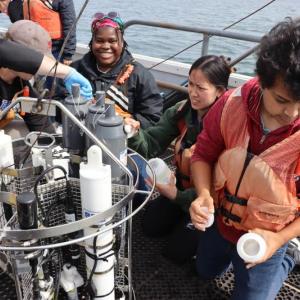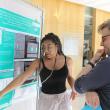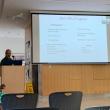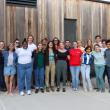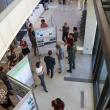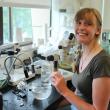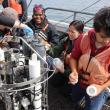Bigelow Laboratory undergraduates complete REU program
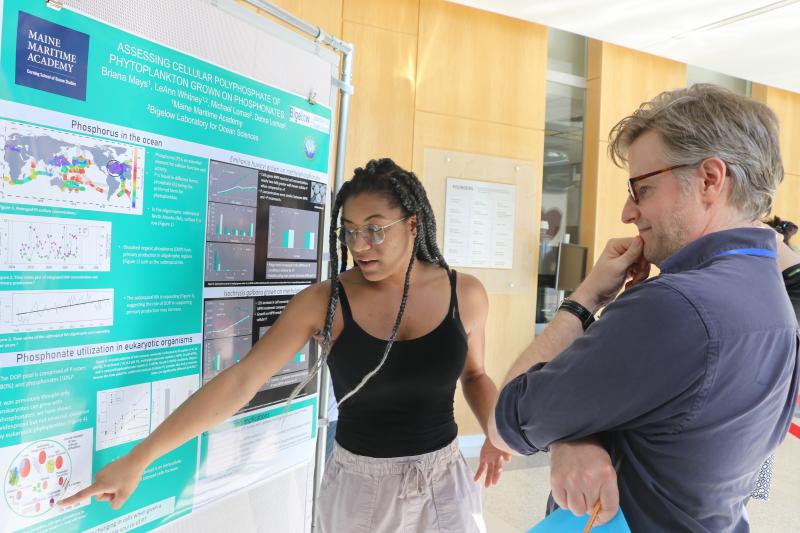 Brianna Mays, a rising senior majoring in marine biology at Maine Maritime Academy, shares her research at the poster presentation. Courtesy of Bigelow Laboratory
Brianna Mays, a rising senior majoring in marine biology at Maine Maritime Academy, shares her research at the poster presentation. Courtesy of Bigelow Laboratory
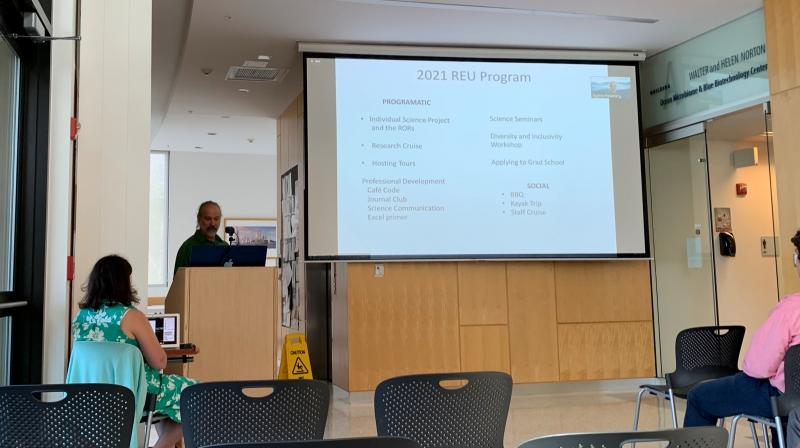 Dr. David Fields presents the activities REU students engage in during their 10 weeks at Bigelow, such as applying to graduate school, participating in a cruise and going on a kayak trip. LILLY CURTIS/Boothbay Register
Dr. David Fields presents the activities REU students engage in during their 10 weeks at Bigelow, such as applying to graduate school, participating in a cruise and going on a kayak trip. LILLY CURTIS/Boothbay Register
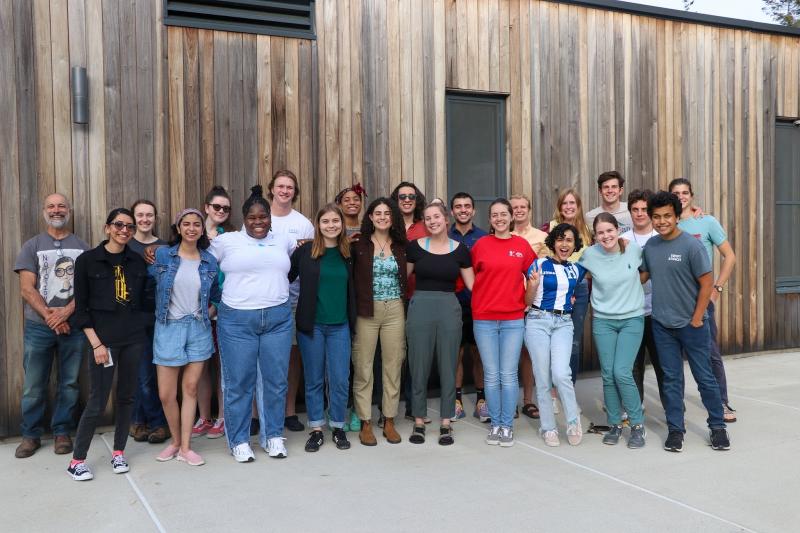 Dr. David Fields, left, and this year's group of undergraduates. Courtesy of Bigelow Laboratory
Dr. David Fields, left, and this year's group of undergraduates. Courtesy of Bigelow Laboratory
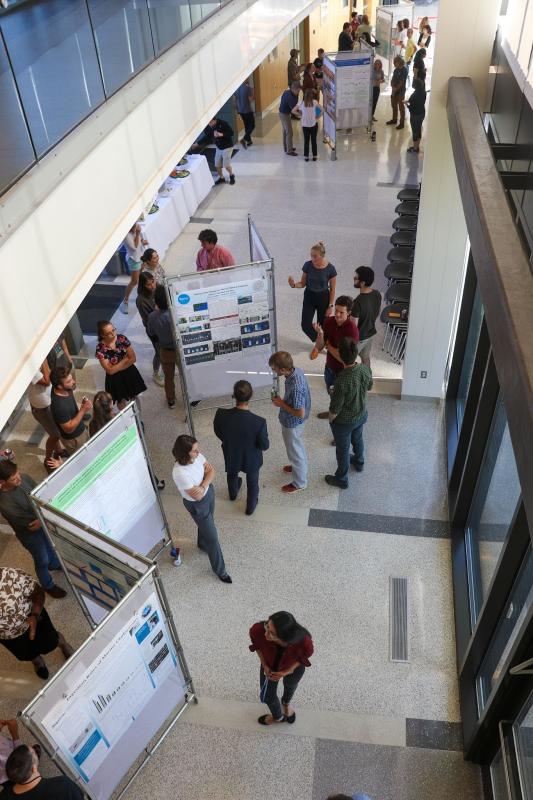 The REU’s poster presentation on July 28, the day before the seminar. Courtesy of Bigelow Laboratory
The REU’s poster presentation on July 28, the day before the seminar. Courtesy of Bigelow Laboratory
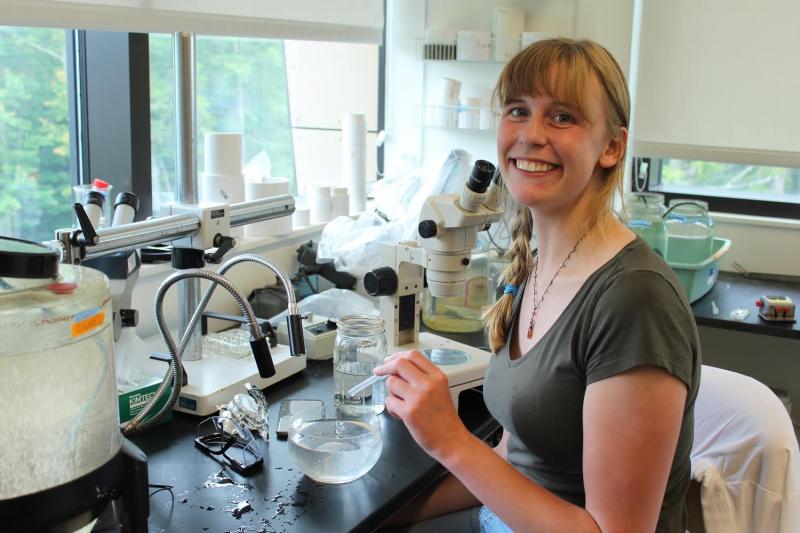 Elizabeth Westbrook conducts research in the lab. Courtesy of Bigelow Laboratory
Elizabeth Westbrook conducts research in the lab. Courtesy of Bigelow Laboratory
 Undergraduates on a cruise collect samples. Courtesy of Bigelow Laboratory
Undergraduates on a cruise collect samples. Courtesy of Bigelow Laboratory
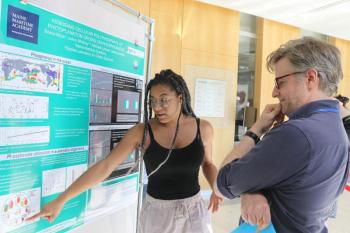 Brianna Mays, a rising senior majoring in marine biology at Maine Maritime Academy, shares her research at the poster presentation. Courtesy of Bigelow Laboratory
Brianna Mays, a rising senior majoring in marine biology at Maine Maritime Academy, shares her research at the poster presentation. Courtesy of Bigelow Laboratory
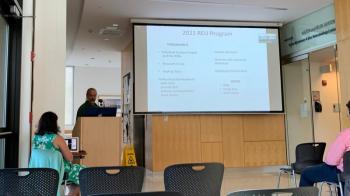 Dr. David Fields presents the activities REU students engage in during their 10 weeks at Bigelow, such as applying to graduate school, participating in a cruise and going on a kayak trip. LILLY CURTIS/Boothbay Register
Dr. David Fields presents the activities REU students engage in during their 10 weeks at Bigelow, such as applying to graduate school, participating in a cruise and going on a kayak trip. LILLY CURTIS/Boothbay Register
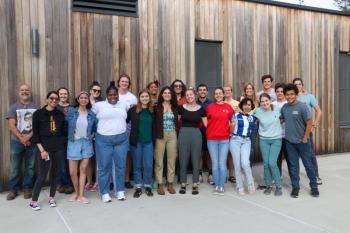 Dr. David Fields, left, and this year's group of undergraduates. Courtesy of Bigelow Laboratory
Dr. David Fields, left, and this year's group of undergraduates. Courtesy of Bigelow Laboratory
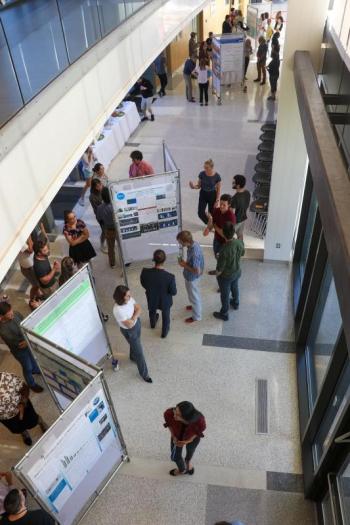 The REU’s poster presentation on July 28, the day before the seminar. Courtesy of Bigelow Laboratory
The REU’s poster presentation on July 28, the day before the seminar. Courtesy of Bigelow Laboratory
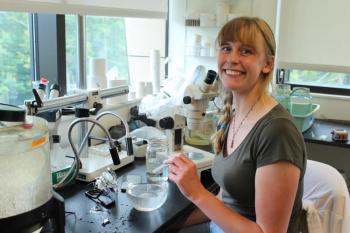 Elizabeth Westbrook conducts research in the lab. Courtesy of Bigelow Laboratory
Elizabeth Westbrook conducts research in the lab. Courtesy of Bigelow Laboratory
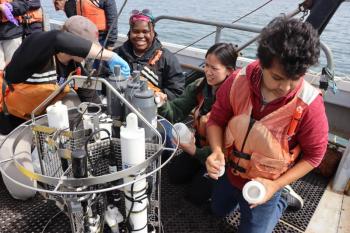 Undergraduates on a cruise collect samples. Courtesy of Bigelow Laboratory
Undergraduates on a cruise collect samples. Courtesy of Bigelow Laboratory
Bigelow Laboratory for Ocean Sciences concluded the13th year of its Research Experience for Undergraduates (REU) with its annual, day-long seminar July 29. The seminar had 25, 15-minute talks by this year’s performing undergraduates. Viewing was both in person and over Zoom so students could showcase their research to the public on topics ranging from shellfish poisoning to seaweed consumption by cows.
The REU program, which began in 2008, lasted for 10 weeks this year from May 24 through July 30 and was directed by senior research scientist David Fields and funded by the National Science Foundation; students receive free housing and a stipend for their research in subcategories of ocean science such as biogeochemistry, ecology and microbiology.
Fields expressed what makes Bigelow’s REU special: “We’re solely a research institution. And so bringing students here is different than bringing them to a university where there’s a lot of coursework and academics being taught. Here, we’re solely focused on embedding the students in a pure research environment.”
Another way Bigelow allows students to focus on research is how undergraduates plan their final presentations. Senior research scientist Nicole Poulton explained, “During their 10-week period, they build their talk over time. They start off with a title slide and then they explain what their research is going to be, then they add on the slides for the methods and then the slides for the results. And then, by the time they get to the end of the program, it’s already done.” She emphasized the value of sharing research to the public, “Because they build their presentation over time, they’ve already practiced it a couple times so they're very comfortable at the seminar. We don’t only give them the tools to learn science but we also give them the tools to indicate science. It’s really important to communicate.”
So far, the REU has provided this immersive research opportunity to 185 students and hosted 18 REU cruises. Further, undergraduates have the opportunity to be published in academic journals, with two to three publications a year and 25 publications.
Michael Staiger, a senior at Colby College studying biology and environmental science, was mentored by Poulton. He studied the estimation of phytoplankton growth and grazing rates using the Novel Saturation method, or “Solution to Dilution.” Staiger described his relationship with the staff at the lab. “Scientists seem like these big scary people who are, like, super smart. But at Bigelow, they’re all really willing to try and help me understand, really willing to make research easy, accessible. I just keep coming back.”
Staiger’s compliments of Bigelow’s open and tight knit community were echoed by many other students. Elizabeth Westbrook from University of Maryland where she studies biochemistry, said, “The environment here, I think it’s really special, it’s very casual. I am really happy forming these relationships, especially with David (Fields) and Dr. Brian (DiMento) who have become my mentors.” She recounted her takeaways from the REU experience. “It’s opened my eyes to how many different kinds of pathways there are through science. I see the research technicians and scientists in the lab and I’m kind of like, wow, that really seems like something I would want to do.”
Poulton said, “I had an REU student who finished his undergraduate, got a master’s with a colleague of mine, and just finished his PhD. Another student went to graduate school and came back as a postdoc, now she teaches at Maine Maritime Academy. You can see that progress.”
Fields concluded, “You introduce them to people in your circle of science and then eventually, you know, from some of the students I’ve had early on, they end up becoming colleagues and you work with them at a very different capacity. And so you see them grow in their careers in science, to the point that they become heroes.”
Event Date
Address
United States

